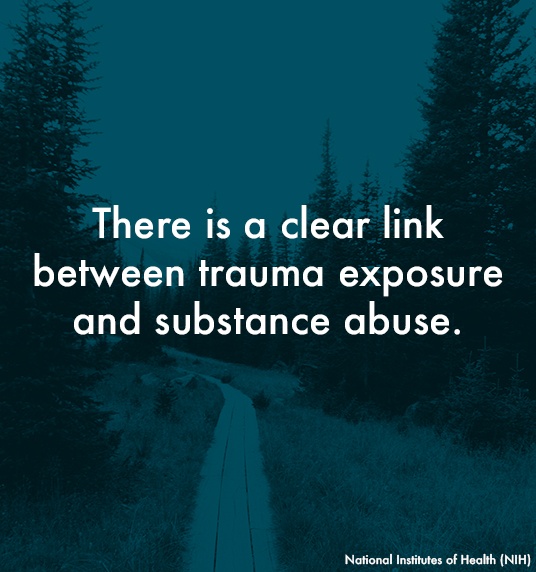What is Somatic EMDR Therapy?
As an intervention in psychotherapy, Somatic Therapy uses body awareness to examine the links between the brain, cognition, and behavior. Post-traumatic stress disorder (PTSD) often results in nervous system dysregulation, which EMDR therapists trained in somatic therapies can address.
Trauma and Recovery


Just like physical trauma occurs, so does psychological trauma. Any number of traumatizing events occur and cause psychological trauma.
This may include:
- Childhood neglect/abuse
- Domestic abuse
- Natural disaster
- Violent events
A lot of people will experience trauma before or because of addiction. It’s possible for addiction to deepen the effects of trauma that existed prior to addiction.
In a study published by the National Institutes of Health (NIH), the authors state that there is a clear link between trauma exposure and substance abuse. They also cite evidence that early childhood trauma increases the risk for psychiatric disorders in adulthood. Many use substances as a means to cope with issues they lack the resources to treat. Thus, it’s important for providers to utilize therapies that are known to help treat trauma. Often, with trauma it is difficult to open up and talk about it.
Eye Movement Desensitization and Reprocessing (EMDR) and Somatic Experience are two therapies that we use at Mountain View Recovery to address trauma in patient’s backgrounds. They’ve proven effective in treating trauma and allowing individuals to process it without necessarily having to talk about it.
EMDR
Per the official EMDR website, “EMDR is a psychotherapy that enables people to heal from the symptoms and emotional distress that are the result of disturbing life experiences.” EMDR aims to help people process psychological trauma so that the painful memories no longer cause distress or lessen the severity of the distress. EMDR is individual therapy with eight phases and the number of sessions depends on the number of traumas and severity. During treatment, the individual recalls troubling images while the therapist engages in a bilateral sensory output, like moving their hands from side to side. While there is interaction with the EMDR therapists, there is less of the therapist interpreting events and more of the patient processing the trauma through their own psychological and emotional processes.
EMDR is effective in helping a number of people work through trauma, reframe it in a way that it ceases to cause significant harm, and develop the ability to manage it in the future. It focuses on the past, the present, and the future. A long-term prevention plan is key in recovery, which is a life-long journey, and EMDR is an effective tool to use in that plan. It works to help individuals manage potential triggers in the future, something that everyone in recovery needs.
MountainView Recovery
5475 Mark Dabling Blvd #102
Colorado Springs, Co 80918
Contact Us Today!
MountainView Resources!
SOMATIC SYSTEM AND TRAUMA
Somatics emphasizes the internal physical feeling and experience. It seeks to bridge the divide between the mind and body. Somatic therapy utilizes talk therapy and what is sometimes seen as alternative forms of physical therapy. A therapist will introduce small amounts of traumatic material and they will pay attention to the patient’s body. The patient is able to process the trauma in a safe way through mindfulness by experiencing the sensations associated with the trauma. One of the goals is to let go of the tension and anger, among other feelings, that continue to cause physical reactions in relation to the trauma. Ultimately, as someone is able to fully process trauma it should have less of an impact over time. Whenever something does trigger it, they should be able to better manage their reaction.


TRAUMA AND ADDICTION
Addiction may result from an attempt to use substances to cope with trauma; trauma can also occur because of addiction. There are many other ways in which trauma and addiction interact. Whatever the case, it’s important to recognize that trauma is a reality for many people in treatment. At Mountain View Recovery, we recognize this and work to handle treatment in a way where clients feel safe and comfortable. Clients are not forced to participate in any therapy, but if they are in need of help for traumatic experiences, we are ready to help them. We do so through a variety of ways, and EMDR and Somatic Therapy is a part of that. If you or a loved one needs help, please reach out today.
Addiction may result from an attempt to use substances to cope with trauma; trauma can also occur because of addiction. There are many other ways in which trauma and addiction interact. Whatever the case, it’s important to recognize that trauma is a reality for many people in treatment. At Mountain View Recovery, we recognize this and work to handle treatment in a way where clients feel safe and comfortable. Clients are not forced to participate in any therapy, but if they are in need of help for traumatic experiences, we are ready to help them. We do so in a variety of ways, and EMDR and Somatic Therapy are a part of that. If you or a loved one needs help, please reach out today.
Mountain View Recovery Treatment Programs
Patient Resources
Addiction is complex, which means treatment and long-term recovery are complex. Despite this, it shouldn’t scare anyone – patients or their loved ones. It just means that treatment and recovery both require thorough and thoughtful planning.
Outpatient Program
Our outpatient program (OP) is a transition preparatory phase. It provides a minimum of nine (9) hours of weekly outpatient treatment. This involves a minimum of one (1) hour/s individual substance abuse/behavioral health counseling per week.
Adventure Therapy
For a long time, nature has been seen as a balm to the problems we face in society. Even during pre-industrial times, people would seek out the countryside as a means to feel better. Many people have also used nature as a way to understand the world.
Trauma and Recovery
Just like physical trauma occurs, so does psychological trauma. Any number of traumatizing events occur and cause psychological trauma. A lot of people will experience trauma before or because of addiction. It’s possible for addiction to deepen…
Neurofeedback
Nobody sets out with the intention of becoming addicted to anything. Even someone making a conscious decision to try substances is not intending to become dependent, experience withdrawal, and risk overdose or death. There are numerous factors.
